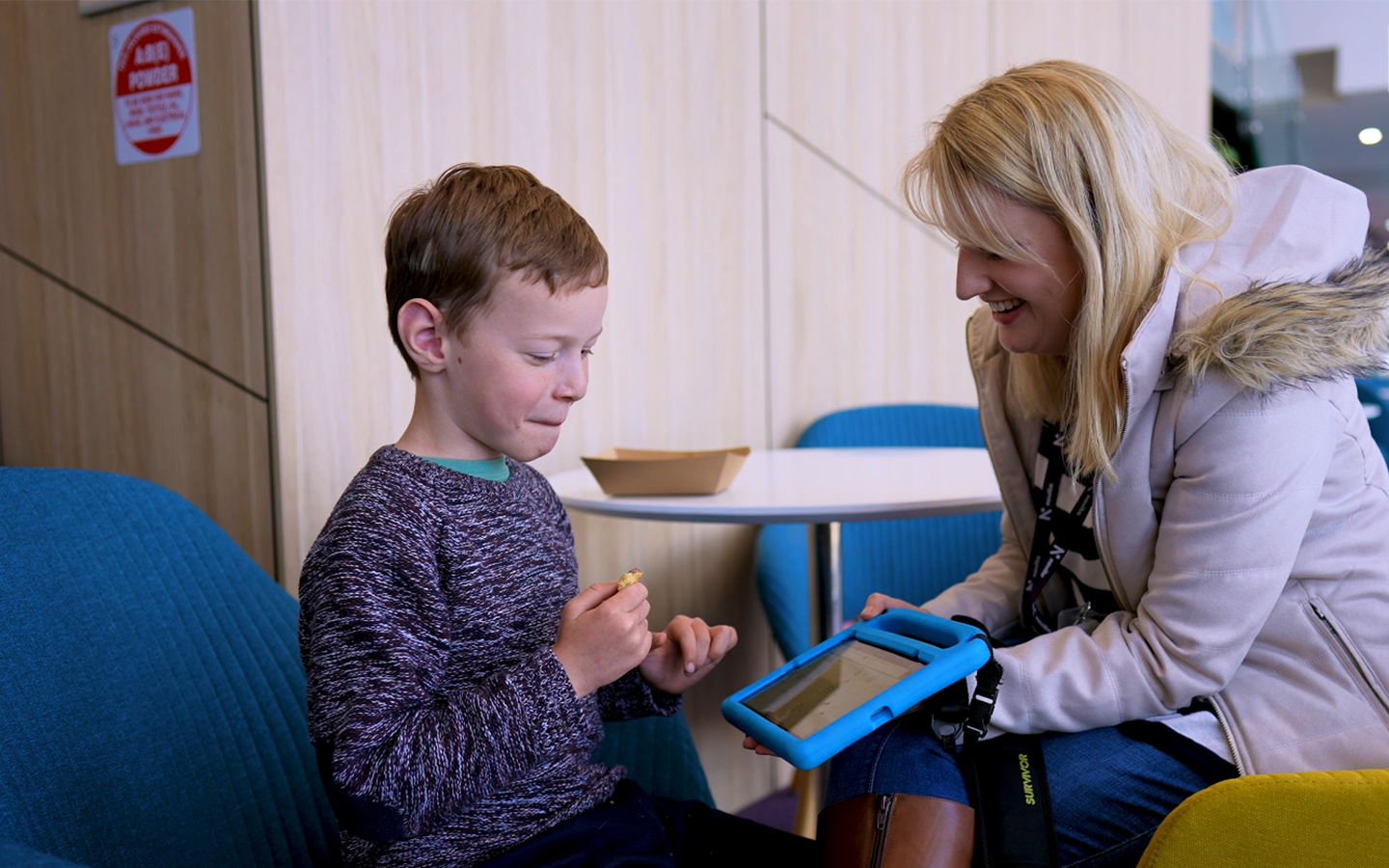News
Top tips to support your child to navigate change with confidence
access_time20min read

A new year often brings hope and excitement, but for parents of children living with disability, dealing with change can be tough.
Change is a part of life, and we all want the best for our children. Worrying about how your child will deal with new situations is completely normal. As your child steps into the outside world, we understand the responsibility you feel to guide them through life’s hurdles.
The good news is that overcoming these challenges is possible. We’ve assembled this guide to support your child as they deal with new changes in their life.
How you can support your child through change
As a parent, you play a crucial role in guiding your child through life’s ups and downs. Adapting to change is an opportunity for your child to face challenges, become independent, and maintain a positive attitude.
Maybe your child feels scared to start a new school year, try a new sport, or get their first job. We get that change can feel overwhelming and uncomfortable.
So, we’ve prepared some simple strategies to assist your child to navigate through changes.

Communicate with your child
Communication builds trust and can ease any feelings of anxiousness. New places and faces can be overwhelming, especially for children living with disability. This is because of the uncertainty about a situation, social overwhelm and unexpected changes. Different things can trigger different children, and sometimes a combination of things can build up to create this overwhelming feeling.
When there’s a significant change coming up, you should let your child know in advance when possible. Set aside some time to chat with them about what changes are coming up. This gives them time to wrap their head around the situation and understand what to expect. So, a heads up can go a long way in making your child feel more comfortable!
You might like to give your child a say in decisions that may affect them. This conveys that your child’s thoughts and opinions are important, and that there are many points that go into making a decision. You might like to give your child two options and guide them with suggestions.
For example, your child might be invited to two birthday parties on the same day. Ask your child which party they think they should go to. This is an opportunity to guide them with suggestions, modelling on the right thing to do.
Ask your child which party they were invited to first. Explain how the other child who invited them might feel if your child went to the other party. The earlier you can support children to be thoughtful about how their decisions may impact others, the better.
Use visual aids
Supporting your child to prepare for change doesn’t have to be complicated. You can make things simple by using visual aids.
- Create a story with words and pictures. Show your child what the change will look like with calendars, charts, and photos. This allows them to understand and prepare for what’s coming up, whether it’s a special event or a shift in their routine. Visual support allows your child to ease any worries they may have and make things clearer.

Become familiar with the environment
Entering a new environment for the first time can sometimes be daunting for children. Before a significant change, assist your child in becoming familiar with the new environment.
Bonnie, Novita Clinical Lead for social work has seen many benefits by visiting the new environment ahead of time.
“If your child is starting a new school, take them on a tour or get pictures of the place. Getting to know the new teacher beforehand can be a game-changer.
You can ask the teacher to talk to your child about what a typical day looks like. They can also show your child the classroom, or even share some fun activities that can be expected in class.” – says Bonnie.
Listen and allow them to ask questions
During times of change, one of the best things you can do for your child is to be there for them and listen to what they say.
- Tune into their concerns and questions.
Take a moment to listen to whatever is on their mind. This can support them navigate through their feelings. Be clear, allow them to ask questions, and create a safe space where they can share their fears, worries, and even their excitement.
- Acknowledging how your child is feeling. This is particularly important when they are feeling upset about a move or change.
You may like to say something like, “Going to a new place can make you feel scared. Feeling that way is okay. Let’s take some deep breaths together. We’ve got this.”
- Embrace listening to what our children have to say. It’s natural for us as parents to want to reassure our child when change is on the horizon. We might try to brush off their worries, thinking we’re shielding them from being upset. Instead, we need to listen to their feelings. Whether they’re mad or upset, it’s okay. Your job is to stand by them, offering a comforting presence through it all.
Manage your own emotions
Change isn’t just about our children; it’s a journey that affects us as parents.
- Don’t forget to look after yourself too. As parents, it’s easy to feel guilty or responsible, thinking we need to be available for our children all the time.
Take a deep breath and invest some time in the things you love. Your well-being matters too.
- Be aware of your own emotions. Children learn from what’s around them.
They often look up to us for cues on how to act. So, start by acknowledging and regulating your own feelings about the changes. If they see us anxious, they may catch onto the fear. Being aware of how our own emotions can influence theirs is crucial. When change is approaching, it’s common to convince our children that it’s ‘no big deal’ or distract them from their emotions. Instead of projecting your worries onto your child by saying, “don’t worry about starting school,” ask them what they’re looking forward to or excited about. This shift in focus highlights the positives and can make a significant impact on how they feel.
- Create a supportive environment by connecting with your child. You can connect with your child by engaging in a range of activities they like. These activities may include playing their favourite game, reading together, cooking their preferred meal, or having a dance party.
Giving your full attention to them, even if it’s only for 10 minutes a day, shows that you are there for them. This is not just during change, but always.

Watch out for changes in behaviour
Sometimes, your child might not always say it, but their actions may show it. If you notice any shifts in their behaviour, have a gentle and understanding conversation with them. Ask them if they feel like describing how they are feeling.
Ask if they feel “butterflies in their tummy,” if their heart is racing, or if they’re getting a bit sweaty. By shining a light on these sensations, you’re teaching them to recognise and make sense of their emotions.
If you’re worried or your child appears dismissive, then it might be time to seek extra support from professionals.
Build a support network
During times of change, having a support network can make the journey easier. Start by connecting with other parents facing similar challenges. You may like to share your personal experiences or get advice that can make the journey feel less lonely. You may even learn something new from other parents!
- Tap into your child’s school resources
Your child’s school is full of resources. You can reach out to their teachers, classmates, and friends who may be able to provide support. Schools often have resources and connections to support you and your child.
Taking steps in the right direction
Navigating change can be tricky, but with the right information you can support your child to face the new year with confidence. Supporting your child through change can be a long-term journey. However, you can make this adjustment much smoother for them with the right support.
Start by implementing some of these strategies. Communicate with your child, listen to how they’re feeling, manage your own emotions and utilise your support network. If you are still concerned about your child’s ability to cope with changes, or you are struggling yourself, extra support is available.
Novita social workers specialise in empowering individuals to achieve their goals, while providing safety and stability during challenging times.
If you or your child are struggling with adapting to change, or you would just like some extra support, our social workers are here to provide the support that you need. For more information on how our social workers can work with your child, you can contact our friendly team on 1300 668 482 or send an email to [email protected].


